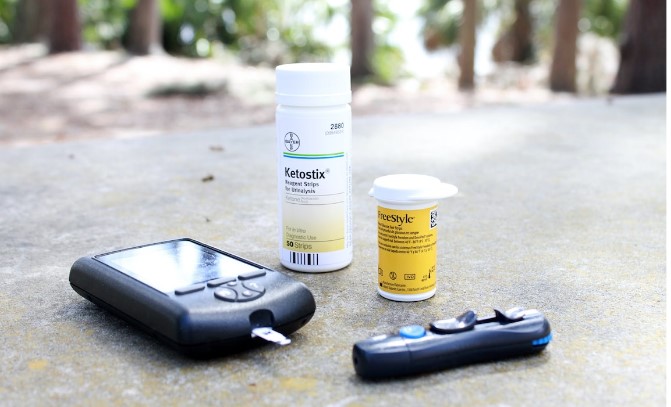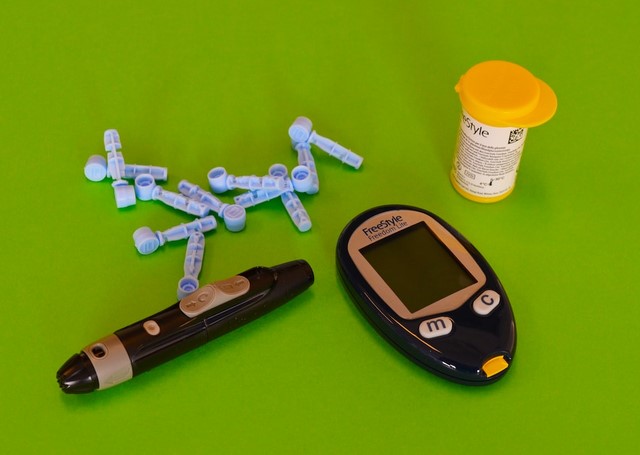Managing Diabetes Daily
Living with diabetes can be a challenge, and you never get to take a day off. It can affect how you feel and put extra pressure on your life. Fortunately, there are many strategies that can help you maintain a healthy lifestyle and control your blood sugar levels. In this article, we’ll provide 9 simple health tips that can help you manage your diabetes daily.

1. Look After Your Feet
High blood sugar levels can lead to poor circulation and nerve damage, causing foot calluses, blisters, and infections. You should inspect your feet daily for any signs of redness, swelling, or cuts. Wash them with warm water and mild soap every day, and dry them thoroughly. Moisturize your skin, but avoid applying lotion between the toes. Trim your nails straight across and file any sharp edges.
Wear comfortable shoes that fit well, to avoid rubbing or pressure points on your feet. There are websites supplying diabetic socks for men and women, and many provide 1-year replacement guarantees. You can buy crew socks, ankle socks, and over-the-calf compression stocking socks. Avoid going barefoot in public places (such as pools or locker rooms) to reduce the risk of picking up an infection. Finally, schedule regular check-ups with a podiatrist who can monitor your feet and provide medical advice.
2. Have A Healthy Diet
It’s important to manage your weight, and – if applicable – discover what causes you to overeat. If you closely monitor your carbohydrate intake through carb counting, it’ll help you keep track of how much carbs you consume with each meal or snack. You should also incorporate plenty of fiber-rich foods in your diet, such as fruits, vegetables, and whole grains.
To maintain a healthy blood sugar level, spread out your meals throughout the day, rather than consuming large portions in one sitting. Additionally, choosing lean proteins like chicken and fish (instead of red meat) can help reduce your risk for heart disease.
3. Stay Hydrated
This helps regulate blood sugar levels, prevents dehydration, and reduces the risk of kidney damage. The recommended daily intake for adults is 8 glasses of water, but this may vary depending on individual needs and activity levels. If you carry a reusable water bottle wherever you go, it’ll make it easy to track your daily water intake. You can also infuse your water with fruits or herbs (like lemon or mint) to add flavor without adding sugar.
Consuming foods with high water content can also help keep you hydrated. Examples include fruits (like berries, melons, and oranges) and vegetables (like cucumber and lettuce).
4. Exercise Regularly
This helps to regulate blood sugar levels, improve insulin sensitivity and reduce the risk of heart disease. Physical activity also aids in maintaining a healthy weight, which is essential for people with diabetes. There are various forms of exercise that diabetics can engage in, including walking, cycling, swimming, or strength training.
It’s recommended that adults aim for at least 30 minutes daily of moderate-intensity aerobic activity. This can be undertaken alongside resistance training (at least twice a week). Individuals with diabetes should always consult their doctor before starting any new physical activity routine. Additionally, it’s wise to monitor blood glucose levels before, during, and after exercise, to ensure they remain within a safe range.
5. Regularly Monitor Your Blood Sugars
Check your levels multiple times each day, and record the results. By doing so, you can identify patterns and make any necessary adjustments to your diet/medication. Also, keep track of any symptoms you experience when your blood sugar is too high or too low (e.g. feeling shaky, dizzy, confused, or fatigued).
By monitoring your blood sugars closely and keeping a record of how you feel throughout the day, you’ll be better equipped to manage your diabetes over time. Your healthcare team can help you set goals for managing your blood sugar levels, and provide guidance on how best to improve them through lifestyle changes or medication adjustments.







